The Extraordinary Form of Lord Jagannatha
Mahanidhi Madan Gopal Das
Pilgrims in Puri often ask the question, “Why does the Deity of Jagannatha Deva have such an unusual form?” The answer is simple—God wants to appear like this, in this most unusual form, to establish religion in this most unusual age of Kali.
The Vamadeva Samhita and the Skanda Purana (Utkala Khanda 18.3, 37) state that Bhagavan Sri Kṛṣṇa appears in this covered wooden form out of His independent will and due to the prayer of Lord Brahma. Ultimately, Jagannatha Deva exhibits whatever form His devotee wants to see as stated in Skanda Purana (Utkala Khanda 23.49-50).
The following story is a slightly different version of the third story told above about the appearance of the Jagannatha Deity. I personally like this pastime, and as they say, anything good is worth repeating.
Kahnai Khuntia, a 16th century Oriya Gauḍīya Vaiṣṇava, gives an amazing explanation for Jagannatha Deva’s form in his classic drama entitled Mahābhāva Prakāśa. He states that Lord Jagannatha’s form is actually the form Bhagavan Sri Kṛṣṇa once manifested while experiencing intense separation from Srimati Rādhārani.
Jagannatha is the mahābhāva-prakāśa rupa of Sri Kṛṣṇa—with fully dilated, blooming lotus eyes, a big round face and shrunken hands, arms and legs. A summary of Mahābhāva Prakāśa follows:
In Dvaraka, Bhagavan Sri Kṛṣṇa resided simultaneously in the palaces of each and every one of His 16,108 wives. Yet in the stillness of midnight, Sri Kṛṣṇa often wept and cried out piteously in His sleep, Rādhe! Rādhe!! Rādhe!!!
Even though His queens served Him with so much love and care, still Sri Kṛṣṇa was not happy. Something was missing. The fact is that after His departure from Vrndavana, Syama’s pangs of separation from Srimati and the damsels of Vraja were as acute as their feelings were for Him. Kṛṣṇa was dreaming of Vrajabhumi and crying, Gopi! Gopi!! Gopi!!! Rādhe! Rādhe!! Rādhe!!!
Perplexed, Kṛṣṇa’s queens once asked mother Rohini to explain their husband’s strange behavior. Rohini Ma replied, “You cannot understand the sweet, intoxicating nature of Sri Kṛṣṇa’s Vraja madhurya-lila because you are all royal people absorbed in grandeur and opulence. Nevertheless, I will describe it just to satisfy your curiosity. I am afraid, however, that if Kṛṣṇa or Balarama happen to pass by and hear the narration, They will totally forget themselves and go mad in ecstasy.”
After collecting all the queens in a big hall, Rohini suggested, “Let Subhadra-devi stand outside the door to prevent Kṛṣṇa and Balarama from entering. If They come, Subhadra will warn me and I will stop speaking.”
While standing by the door, Subhadra became absorbed in the Vraja lila-katha and completely forgot herself. She became stunned and manifested a uniquely ecstatic form with dilated eyes and arms and legs retracted into her body.
Meanwhile, Kṛṣṇa and Balarama came there and saw Subhadra’s bizarre form. Curious, the two brothers listened to Rohini’s narration. Within a few minutes, They lost themselves in the sweet memories of Vraja and swooned in ecstasy. The lotus eyes of Kṛṣṇa and Balarama fully blossomed and Their arms, hands, legs and feet withdrew into Their divine bodies like a tortoise.
Devarsi Narada suddenly appeared and from a distance gazed upon these three beautiful, ecstatic forms manifesting the symptoms of the topmost Vraja madhurya-prema in Their mahābhāva-prakāśa forms. As Narada neared, Jagannatha, Baladeva and Subhadra concealed that bhāva and assumed Their original forms. It was too late!
Narada joyfully exclaimed, “I have seen it! I have seen it! O my Lord! Please hear my prayer. May that mahābhāva-prakāśa form of Yours be manifest in some place on the earth. Let all the people in the world see that beautiful form and worship You in that form!”
Sri Kṛṣṇa, who always fulfills the desires of His pure devotees, replied, “Let it be” (tathāstu). In this way, Sri Jagannatha Deva, Sri Baladeva and Srimati Subhadra manifested the unique forms visible today in Sri Purusottama Dhama. (Embankment of Separation, adapted)
(An excerpt from Jagannatha Puri Guide Book)

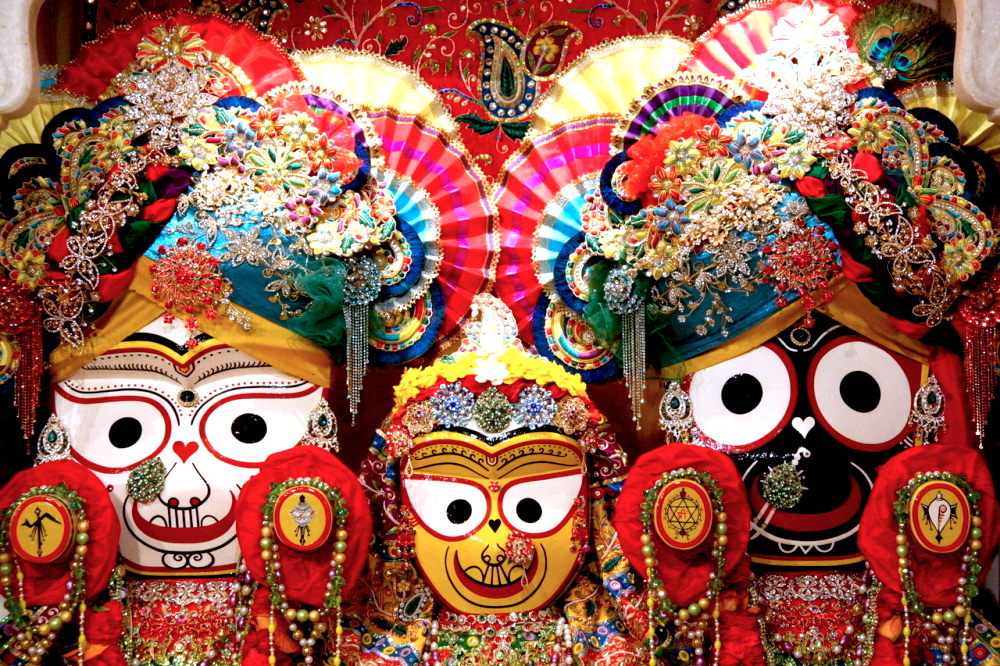
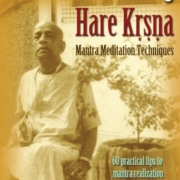
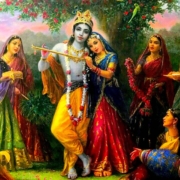
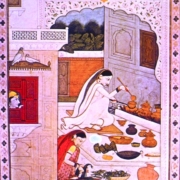
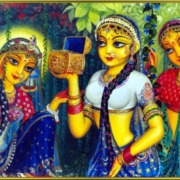
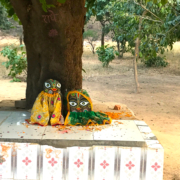
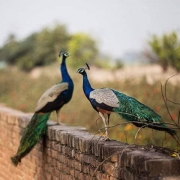
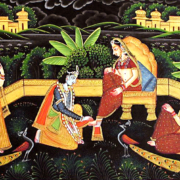


Leave a Reply
Want to join the discussion?Feel free to contribute!